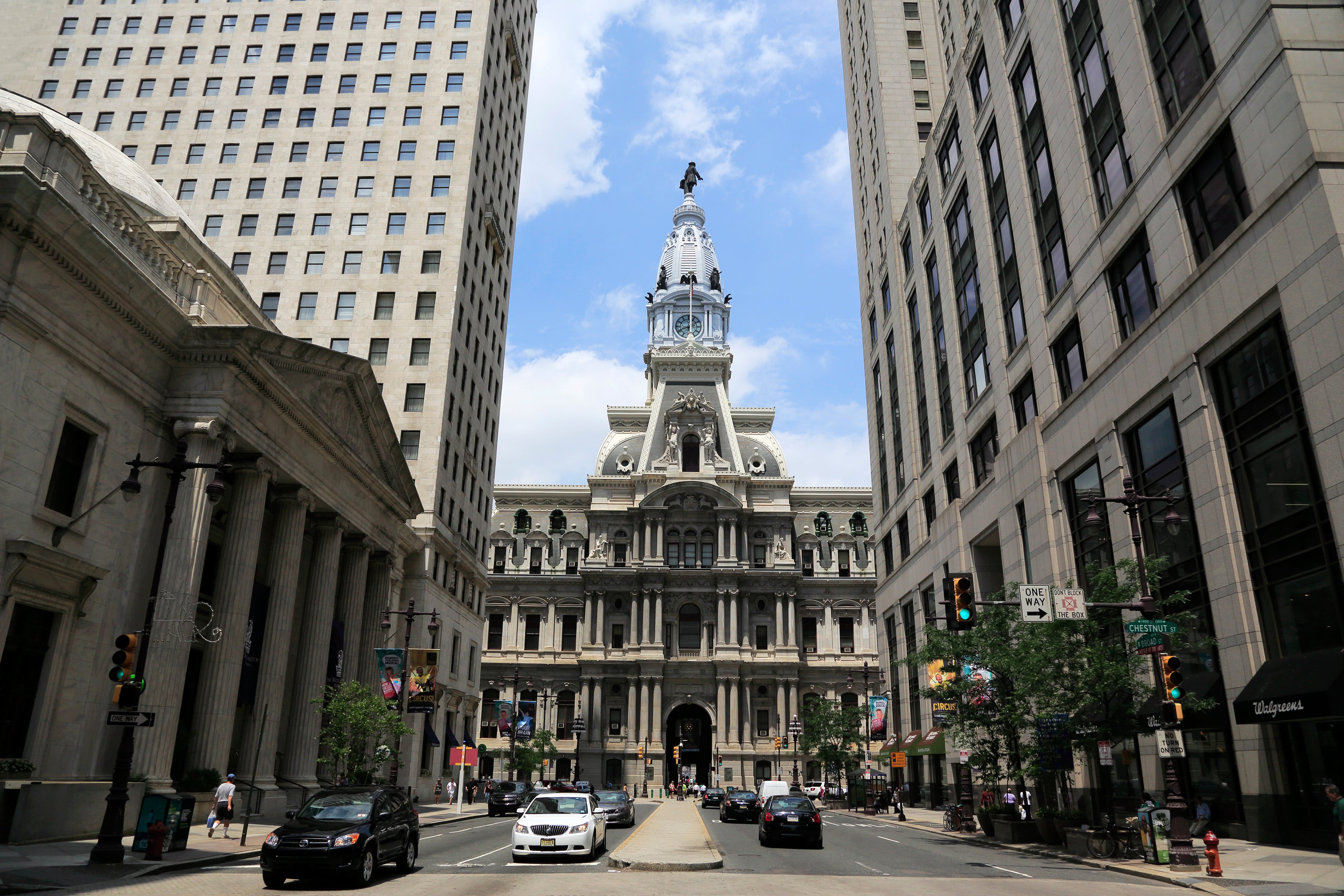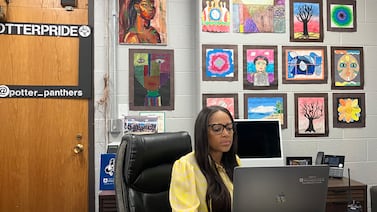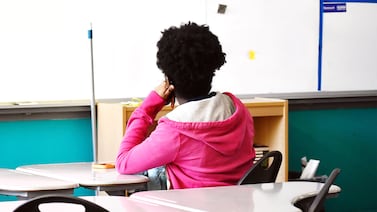Philadelphia’s next mayor — the city’s 100th — will be in a historic position with the ability to fundamentally change the way schools are run and governed.
In addition to shaping the city’s conversation about school safety, infrastructure, funding, and more, the mayor has the power to appoint the city Board of Education’s nine members. Those members have the responsibility of appointing and evaluating the superintendent, and monitoring the district’s efforts towards improving educational outcomes for all students under their care.
Democrat Cherelle Parker and Republican David Oh are vying for the seat, and each has put forward distinct platform proposals for education.
Parker is promising year-round school, which she said she envisions not as “children sitting in a classroom at a desk” for 12 months, but something more flexible, with extracurricular and enrichment opportunities available to students all year.
Oh, meanwhile, wants a partially elected school board and a more “horizontal” leadership model with power shared between the superintendent and other chief executives.
The general election is Tuesday, Nov. 7, and the last day to vote early in person is Tuesday, Oct. 31.
Chalkbeat sat down with both candidates and discussed issues affecting Philadelphia’s students, educators, and families at length. You can find Cherelle Parker’s detailed Q&A here, and David Oh’s detailed Q&A here.
Below is a selection of their responses to some of the biggest education questions facing the city. Their answers have been edited for length and clarity.
Do you want more charter schools in Philadelphia?
Parker: I want quality, modern 21st education for all of our children [regardless of] their race, class, socioeconomic status, or zip code.
Under a Parker administration, I will not allow anyone to pit traditional publics versus traditional charters to act as if those two are warring factions. They are not. They are two types of schools that are both public that educate children in the school district of Philadelphia
Oh: No, I don’t. I’m not for or against the charter schools … I’m for good public schools. But we’ve had horrible public schools and no response. And therefore there were charter schools.
I think we have enough charter schools.
What would you do about school safety?
Parker: We have to make public health and public safety the number one priority here in the city of Philadelphia, and we should do it with three primary buckets in mind, prevention, intervention and enforcement.
We are going to have community policing in every neighborhood in the city of Philadelphia. The only time we see law enforcement won’t be because it’s a crisis and someone called 911. They will be a part of the very fabric of our neighborhoods, and that, of course, does mean in and around our schools and buildings.
Oh: [Students] have every legitimate reason why they cannot focus and why they are afraid. They’ve been traumatized by all this gun violence. They have to see we care. The way I show them we care is I have uniformed officers, school police — no weapon, but looking sharp, being attentive and being accountable.
People want policing, but they want police reform. They want good policing. They don’t want police brutality. They don’t want ‘stop and frisk,’ I’m against the return of stop and frisk.
What is your plan to address Philly schools’ facilities needs?
Parker: Let’s think about using apprentices and pre apprentices in the building trades and students in our school district to help be a part of that process. Do we do it via a School Building Authority, an accelerated process within our current structure? I’m not sure.
I’m more concerned with getting it done. We have to get together at the table, agree to what the plan will be. And then we have to be unified in our advocacy and not trying to pick winners and losers with the ultimate goal being focused on our children and doing right by the people who work in those buildings.
Oh: I think there is purposeful inefficiency [in school construction and upkeep]. … I would look at serious rightsizing of the district based on the fact that we probably need to build new buildings.
We need to look at the buildings that have asbestos and actually clean them for real and not just coat them. We don’t need to remediate them. We have to remove it.
The most direct control the mayor has over education is appointing the school board. Would you make any changes to the board?
Parker: I am not going to make any comments or personnel decisions while I’m on the campaign trail. … I will be looking for people with a deep commitment to our city, the children of our city, and [who] share my vision for public education in this city.
I will not and do not support an elected school board because if you elect a school board that comes with taxing authority … I trust the [city] council with the taxing authority for the city of Philadelphia. They are our legislative branch.
Oh: I would appoint nine new [members] … start from scratch.
I have really pushed five elected school board members … we can have five councilmanic districts where the people elect a representative … regionally, [combining the 10 councilmanic districts to make five], but not the same as the council districts.
That would give people a level of responsiveness and accountability that they really feel is missing in the school district
How would you address the teacher shortage?
Parker: We’ve got to market it to them.
Philadelphia hasn’t done a good job in trying to package supports and services that we have available for example, with home ownership. … We’re going to make [Philadelphia] the safest, cleanest, greenest big city in the nation with economic opportunity for all and because it’s safe, we want you to have access to home ownership in a safe and a clean area with a thriving economy, thriving arts, culture, creative economy.
Oh: We’re losing teachers to public safety issues, and they’re telling us “we’re getting out of here, because it’s dangerous for us to go to work … this is not what we signed up for and you don’t seem to care.”
If I wanted to deal with teachers, I would look at recruitment. I would create a more predictable system of how you get paid, and how the pay increases every certain number of years. And it would incentivize staying in Philadelphia longer.
Carly Sitrin is the bureau chief for Chalkbeat Philadelphia. Contact Carly at csitrin@chalkbeat.org.







